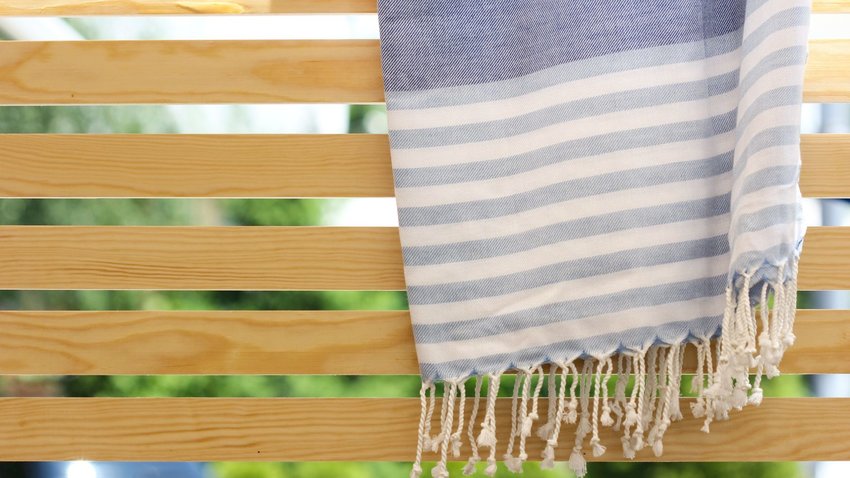Your whole life, you’ve probably known towels to feel a certain way: plush, soft, “fuzzy.” But Turkish towels take a wildly different approach to drying you off, and their unique properties make them just as useful for travel as they are for your bathroom.
It Started In Bathhouses
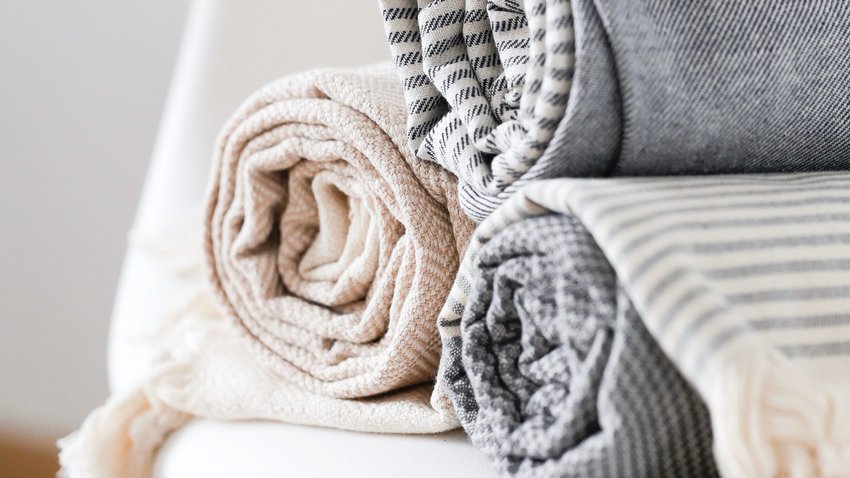
Also known as Pestemal towels, Turkish towels date back to at least the 18th century, and were commonly used as body coverings in Turkey’s famous hammams, or bathhouses. The towels often featured ornate patterns, and grew out of the Ottoman tradition of rug weaving.
Today, several companies produce Turkish towels, but they all adhere to two binding principles: they have to be woven in Turkey, and they have to be made from Turkish long staple cotton. This cotton, grown in the Aegean region of turkey, is longer, stronger, and slightly less absorbent than Egyptian cotton, which is more commonly found in textiles like bed sheets. The cotton is still absorbent enough to dry off your body, but it won’t hold onto water too long, which could lead to mildew and musty smells, particularly in a bathroom with poor ventilation (or a humid hammam).
Why They’re Better
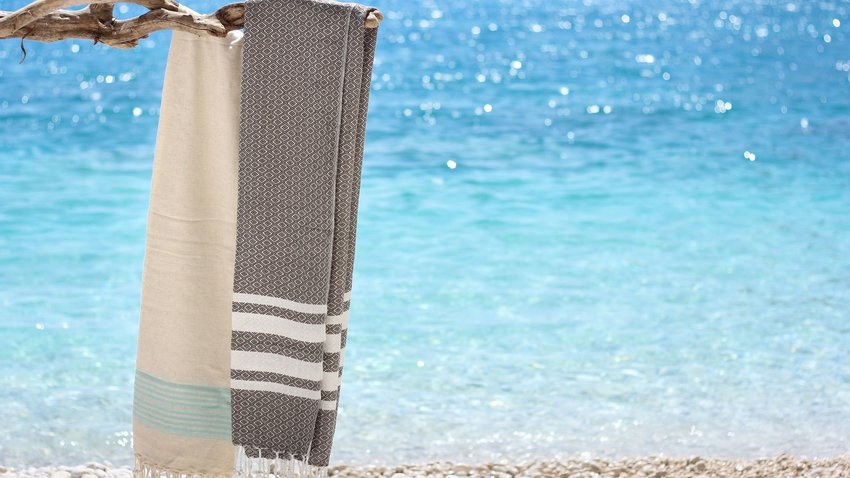
The long, strong cotton fibers might seem a bit coarse at first, but they soften with every wash, and allow Turkish towels to be thin and flat (or occasionally waffle-weaved), rather than thick and plush. They may feel a bit less luxurious against your skin after a shower than a thick, absorbent towel, but they’ll get you dry in no time, and their thinness allows them to dry out quickly, whereas plusher towels might still be damp for several hours thereafter.
I used to live in an old house with no bathroom ventilation. No ceiling fan, no window, and no air conditioning vent. And it was in Texas. The only time we ever experienced truly dry towels after a shower was whenever we remembered to hang up a clean set. But after far too many months wiping ourselves down with towels that were probably laced with mildew, we invested in a few sets of Turkish towels from Turkish Towel Company. Lo and behold, they actually dried out between showers, and they’re still in our regular rotation even though we now live in a place with proper ventilation.
Patterns Reminiscent of Rugs
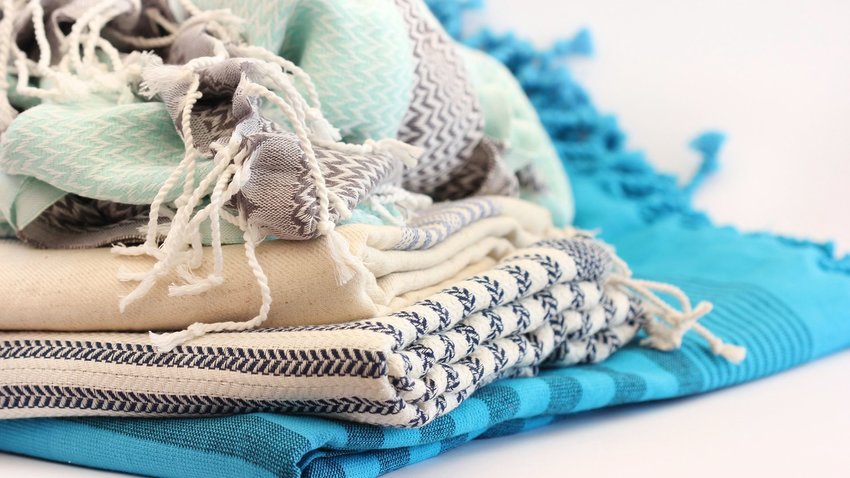
It’s almost shockingly rare to see a bath towel out in the world with more than one color. Occasionally you’ll spot a towel with a simple stripe near the edges. But Turkish Towels almost always feature several different colors, unique patterns, and braided tassels on the ends for a little extra design flair. It’s not surprising given that they were born out of a rug-weaving tradition, but it’s one of the simplest ways to add a little pop of unexpected color to your bathroom.
For example, this simple striped towel evokes a stylish breton shirt, the darker design of this towel will pop off a traditional white wall in a bathroom, and this navy and red striped option might remind you of an American flag. If you prefer monochromatic towels, you’ll want to look elsewhere, but personally, I love that they have a little panache.
Travel Friendly Too
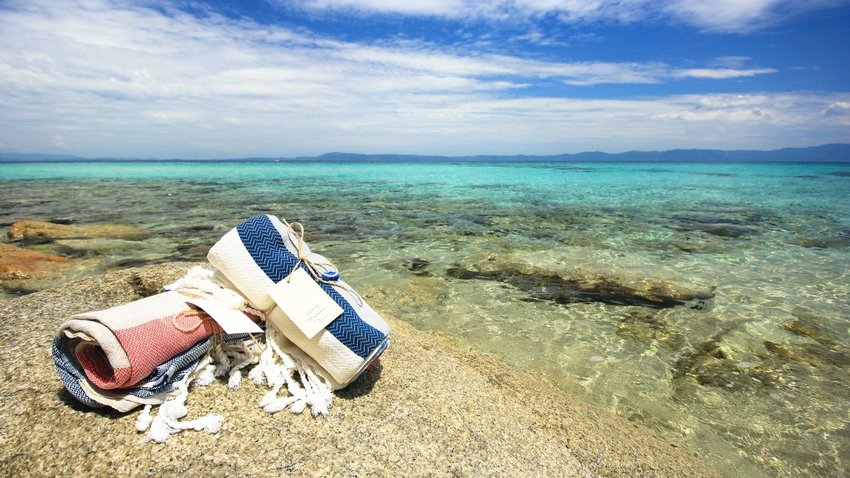
The thinness that allows Turkish towels to dry quickly also makes them perfect for travel and trips to the beach. A couple of traditional, rolled up beach towels would just about fill up your average tote bag, but you can roll up a flat Turkish towel to the size of a large burrito, and still have room in your bag for extra snacks and sunscreen. If you really wanted to, you could even stuff a few of them into a carry-on suitcase alongside with your clothes for a longer trip.
And when it comes time to leave the beach, flat Turkish towels don’t have any nooks and crannies for sand to stick like plusher towels, making it much easier to shake off loose sand before you start heading back to the car.
Frankly, I’m surprised that Turkish towels aren’t more popular than they are, but I suppose most of us grew up expecting our bath towels to be thick and soft. Put one Turkish towel into your rotation though (possibly for under $20!), and I’m pretty confident you’ll go back to buy more.
Top photo by VanjaIvana

